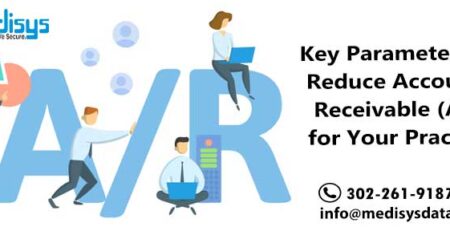Hospital administrators, physicians, and members of every healthcare office billing department know that if their practice or hospital provides services to Medicare patients, they must be prepared to potentially receive a request for an audit. The Centers for Medicare and Medicaid Services (CMS) is responsible for devising the audit strategy and enforcing it on a year-to-year basis. Medicare audit process may seem overwhelming, but becoming familiar with the process will allow your organization to be prepared if an audit does occur. CMS also provides documents online to help you further understand the process in more detail. To help prepare you to deal with this likely occurrence, we shared guidance for compliant documentation and timely response to auditors. When you are prepared for Medicare audit, it can ease the audit discomfort and enable you to focus on caring for patients.
Responding to an Audit Request
Once you have gathered all the paperwork needed to support your claim, make two sets of copies of everything you are sending. Keep one set for yourself, so you know exactly what each packet contained. Follow these guidelines for assembling and submitting your responses:
- Include a cover letter explaining that you are replying to their request. Include in the cover letter the telephone number auditors should use to contact you or your representative if any questions arise.
- Next include a copy of the ADR as the first sheet in each packet.
- Write an individual summary of each record, detailing the medical issues addressed in your documents; include the patient’s name, date of birth, HIC number, medical condition, prescribers’ names, etc., and discuss what will be found in the enclosed documents.
- If anything in the ADR is not included, mention that in the written summary. For example, if physician documentation doesn’t arrive in a timely manner, note that physician documentation is lacking but will be forwarded when it becomes available.
- Assemble the documents in the order listed on the ADR, and put each file in the same order.
- Pack into an appropriate box with a list of all records contained in each box.
- Keep copies of everything sent.
- Send via any method of return receipt to ensure delivery at least one day before your deadline.
Prepare for a Medicare Audit
- Most CMS notifications arrive by mail, so make sure your front office knows what to do with these letters when they’re received. CMS only allows a window of 45 days to respond, so time is of the essence and unpaid claims may be the result of missing the deadline.
- A Medicare audit is not something to take lightly and everyone in your staff must understand how important it is to comply accordingly.
- CMS will notify about the submissions under review and supporting documents are needed. Select team members to run point on this to streamline communication within the office and with the Medicare contractor.
- If you’ve been audited by CMS previously, review those audits. Make sure your staff took the proper steps to rectify the problems that triggered the previous audits. Medicare can look at claims as old as four years, so review as many claims as possible and look for mistakes. If you have a plan in place to correct the mistakes you discovered, it will save time during the audit.
- When gathering the necessary documentation for audit resolution, ensure complete prescriber medical records. Organizing and storing complete documentation can be time consuming but essential.
- It’s always advisable to complete documentation at the time of service than try to piece the puzzle together at the time of an audit, which could potentially occur years after the claim has been paid. Medical records must specify each patient’s diagnosis and detail the medical necessity for the equipment.
- Your point person is critical in the auditing process, he or she must be knowledgeable and well-informed on Medicare billing practices and your own internal billing systems.
A Medicare audit is not something that should be taken lightly, but it can be prepared for ahead of time by instituting best practices. By knowing what errors are most common, you and your staff can determine which areas you are already proficient in and which areas may need improvement. When it comes to a Medicare audit, being prepared and ahead of the curve is always the best course of action.
Medisys Data Solutions is a leading medical billing company providing complete assistance in medical billing and coding. By implementing processes that follow CMS regulatory guidelines for Medicare, your healthcare organization can be confident in your ability to weather an audit. To know more about our billing and coding services, contact us at info@medisysdata.com/ 302-261-9187.
Reference: Preparing for a Medicare Audit












